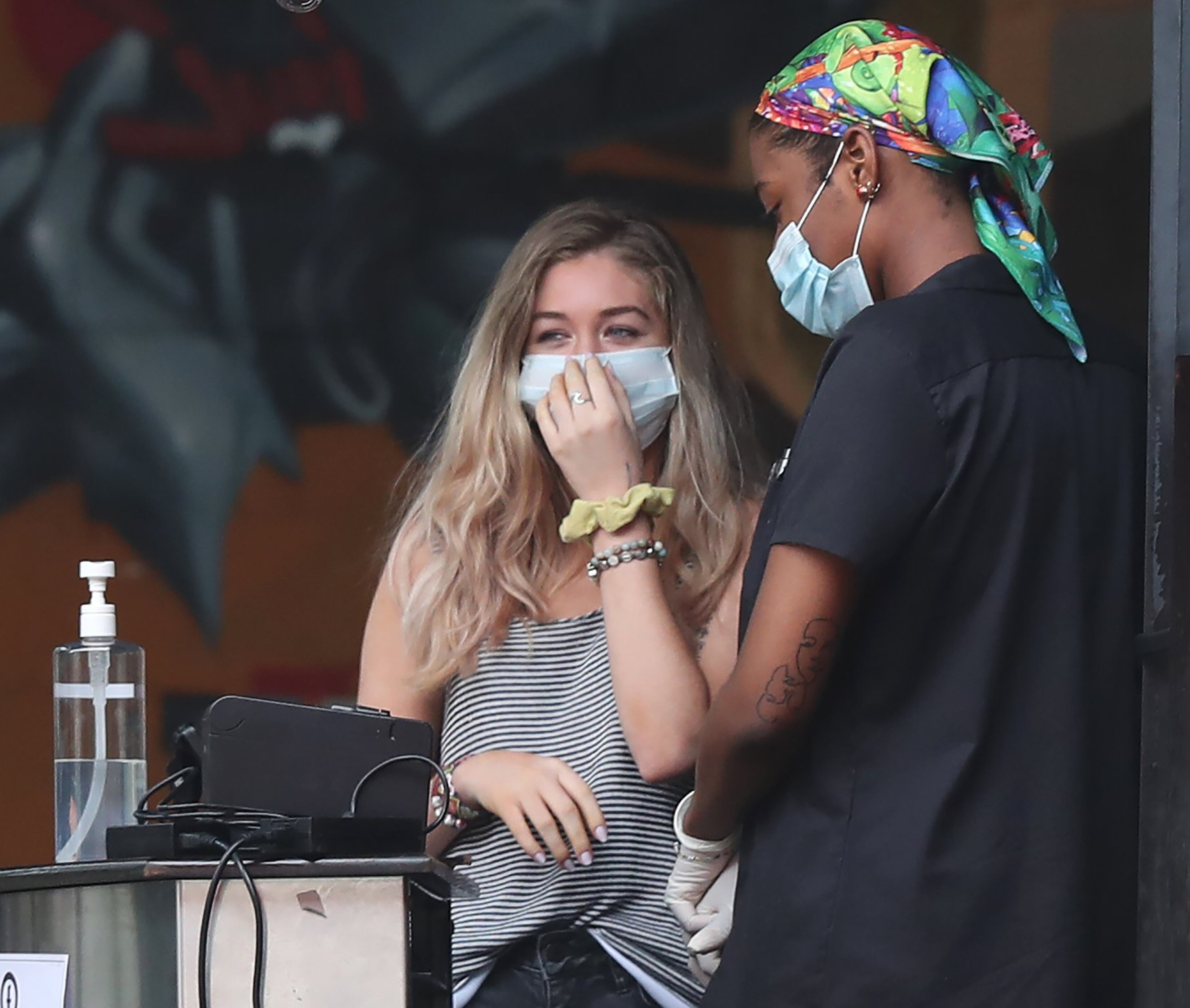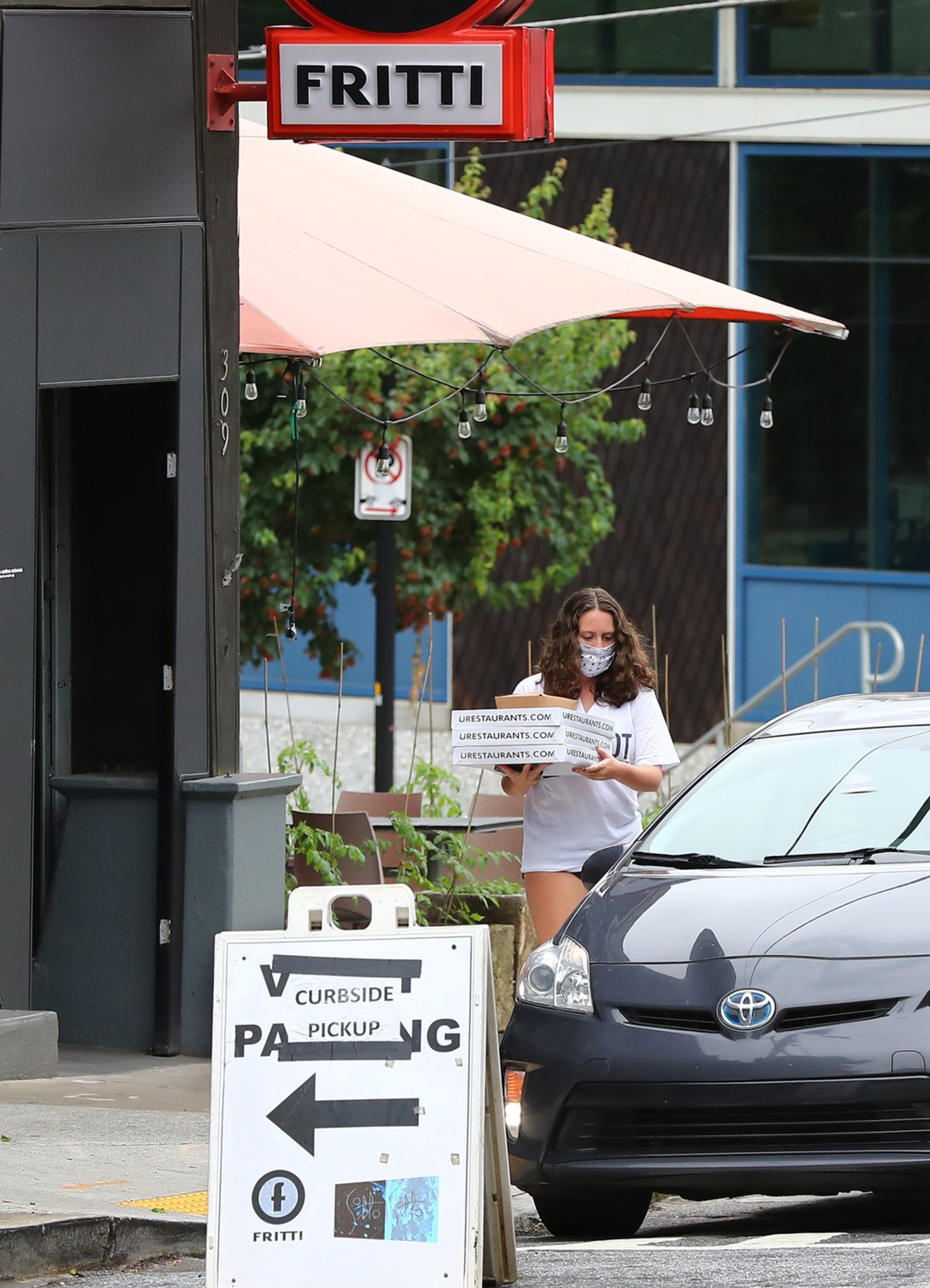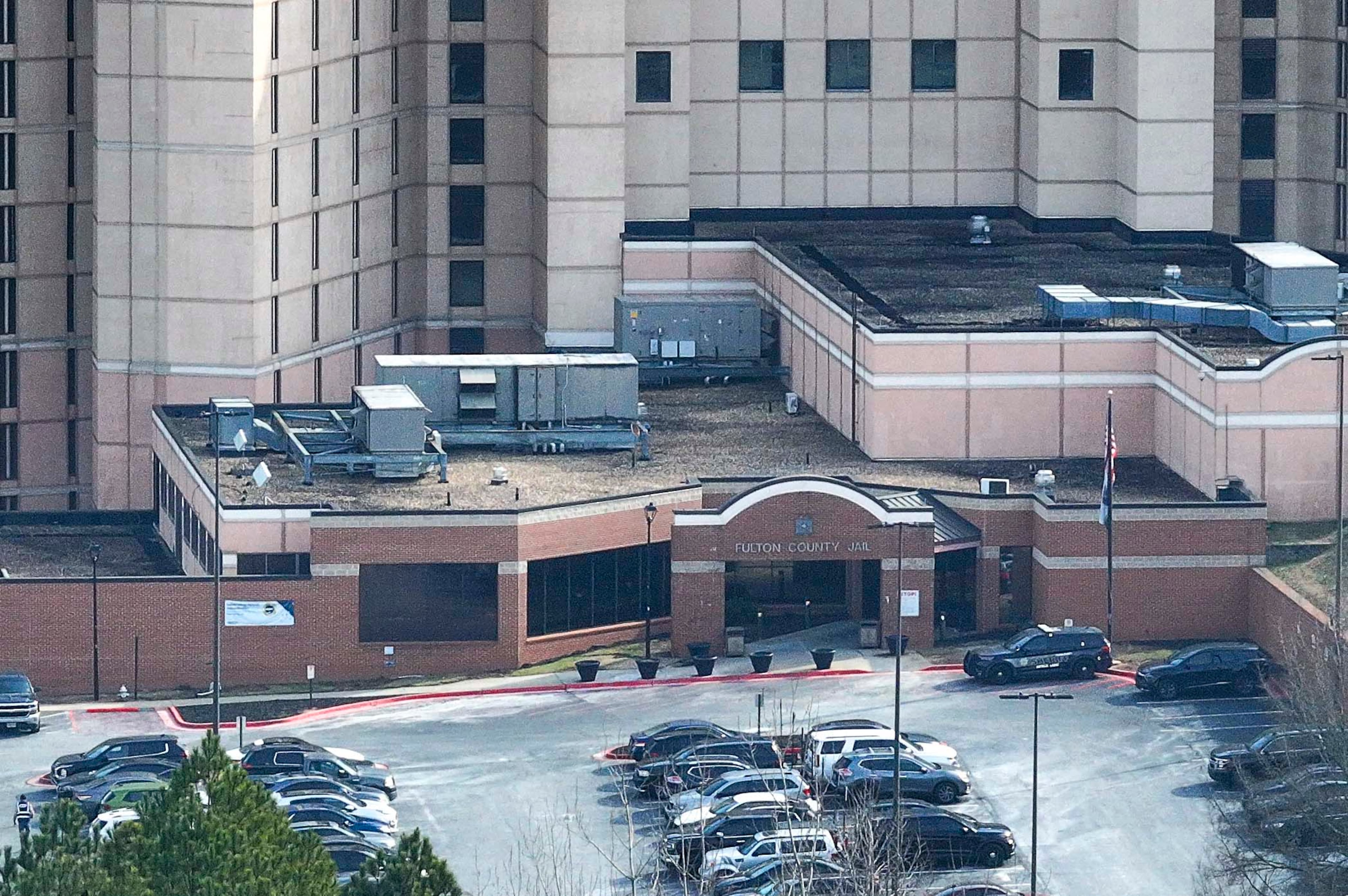Safety questions at Inman Park eateries expose risks of dine-in eating

Sotto Sotto and Fritti, two of Inman Park's oldest and most popular restaurants, offered to-go dinners to survive the early days of the coronavirus pandemic and were preparing to reopen when Gov. Brian Kemp lifted restrictions on dine-in service in late April. Then, just as abruptly, the restaurants closed.
An employee informed owner Riccardo Ullio the employee tested positive for COVID-19 on April 28. Ullio cleaned the kitchens and dining rooms, tested the staff and reopened its to-go service two days later. Nothing was said to patrons who might have encountered the sick employee. Within two weeks, both restaurants begin serving dine-in customers.
Some restaurant staff say Ullio hasn’t followed proper safety protocols, putting them and diners at risk of exposure to the novel coronavirus. The Atlanta Journal-Constitution interviewed five current and former staffers, who asked to remain anonymous either because they feared they would be fired or blackballed if they sought work elsewhere.
“There is no social distancing,” one member of the waitstaff told the AJC. “People are on top of each other. There are masks, but some people are choosing not to wear them.”

For the dining public, the allegations of unsafe conditions at two established restaurants are a warning sign in the rush to reopen Georgia's economy and return to the pleasures of chef-prepared meals.
In normal times, health inspection reports lay bare a restaurant’s smallest code infraction, from dirty floors to arrangement of meat and produce in the cooler. But amid a global pandemic, no such reports are available. Consumers now are left to decide their own level of acceptable risk without much information.
Kemp’s order lifting restrictions for in-house dining required restaurants to abide by a lengthy list of safety precautions, including daily checks of employees for symptoms, sanitation stations for diners, and limits on party size per table and total diners, based on the size of the dining room.
It didn’t include a requirement for restaurants to notify patrons if they might have been exposed to the virus, or tell public health officials so they might trace potential exposures.
There is also little evidence that government regulators are riding herd over businesses to make sure the restaurant guidelines are being followed.

The Georgia State Patrol has authority to force restaurants to follow the steps outlined in Kemp's order. So far, state troopers have written reports for six restaurants for violating state guidelines for reopening. All the reports note the primary reason for the visit has been for overcrowding. However, in the case of T.J.'s Bar and Grill, the trooper also noted restaurant employees were not wearing masks and sanitizer was not available.
Kemp’s office said local law enforcement and county health departments have also been “deputized” to enforce the protocols, but Atlanta Police Department spokesman Carlos Campos said officers are looking to restaurants to voluntarily comply with the rules.
“While we believe strongly that compliance with CDC and other public health recommendations are vital to stopping the spread of COVID-19, we do not want to be in a space where our officers are spending their shifts attempting to enforce these guidelines inside of restaurants throughout the city,” Campos said.
He said city police stand ready to address “flagrant violations,” but so far they have found “conversations with restaurant managers have generally been fruitful” in ensuring compliance with the governor’s orders.
At Sotto Sotto, one of the five employees who spoke to the AJC said the restaurants reopened with little acknowledgement of Kemp’s guidelines.
“I had managers yesterday who didn’t know they existed,” the employee said in an interview last month. “They laughed at it.”

Staff dispute goes public
Because of the highly infectious nature of the coronavirus — it spreads easily in enclosed spaces where people are close together — restaurants are among the businesses hardest hit by the pandemic. The nature of food service also puts restaurant staff at high risk of exposure from people whose own contacts and safety regimens are unknown.
Many restaurants did not rush to open after Kemp’s initial executive order on dine-in eating April 27. But Sotto Sotto and Fritti were among the first in the dinning hub of Inman Park to reopen when the governor released a revised executive order on May 12, increasing the number of diners per table from six to 10 and the total diners from six to 10 per 300 square feet of dining space. In recent weeks, most of the quarter’s other restaurants have followed with some version of in-house dining.
The dispute between Ullio and staff spilled into public last month when an anonymous group of former employees emailed a “media advisory” to the AJC and other media accusing Ullio of unsafe business practices. Ullio responded with a statement to the online website What Now Atlanta and a long Facebook post, defending how he handled the staffer who tested positive for the virus and disclosing that he paid for his other staff to be tested.
“I feel very good about the fact that even though one person was infectious, he did not transmit it to anyone else,” Ullio wrote. “This tells me that our sanitation procedures are working very well. The manager was quarantined until May 10, until he tested negative twice in a row as recommended. He then came back to work.”
Recently Ullio invited the AJC in to visit and photograph the restaurants. Staffers wore masks of various descriptions while serving a small crowd of diners. Most wore gloves.
“I have nothing to hide. I’ve gone above and beyond what the regulations are,” he told the AJC.

Temperature checks useless, owner says
Ullio’s comments and actions haven’t reassured staff.
An employee who has returned to work said many haven’t returned because they don’t feel safe. Those who have are not screened for symptoms.
“No temperature checks, no anything,” the employee said in an interview earlier this month. “The only thing that was asked of me when I showed up yesterday was, ‘Did you clock in?’”
Ullio did not dispute some of the claims, but he offered his own explanations.
“We don’t do temperature checks because they are useless,” Ullio responded. Daily checks for fever and other coronavirus symptoms are a requirement under Kemp’s executive order, but Ullio said he believes they “are the wrong way to go” because some carriers of the virus are asymptomatic.
As for masks, he said staff are expected to wear them. “We have people take down their masks because they can’t breathe,” he said. When he sees that, he said he tells staffers to take a break outside.
“These things get hot, man, and people take them off,” he said. “And I tell them ‘you’ve got to keep them on all the time.’”
Jimmy Northup, a manager at Sotto Sotto and a 16-year employee of the restaurant group, said he realizes returning to work is a complicated decision for his employees.
“There are so many different levels of concern with different people,” he said. “I don’t deny anyone their level of concern.”
But Northup said the restaurant is following state guidelines, including temperature checks. When asked why Ullio said temperatures were not being checked, Northrup said the owner is “not there all the time.”
“I know we were doing it until very recently,” he said.
Northup said he believes Ullio’s forceful, hard-charging personality and desire to reopen may rattle some who are nervous.
“He’s just really intense,” he said. “I would say that I haven’t felt at risk at work, but I’ve been trying to be very careful.”

A server who returned to work recently expressed fear about the diners who flocked back to “take back” their neighborhood eatery.
“I have kids,” the server said. “We can’t control who comes into our restaurant. We can’t control if they are practicing COVID-era hygiene or even believe in what is going on.”
Ullio himself described the diners as less fearful than most.
“They are people who tend to be in the herd immunity, Sweden side of this,” he said.
Sweden bucked most of the rest of the world by refusing to clamp down on businesses to staunch the spread of the virus, betting that exposure to the virus would increase the population’s immunity to it. Ullio said his younger clientele has less fear that catching COVID-19 will prove fatal.
“If you are in your 30s … you are just as likely to die in a car accident as you are to die of this,” he said. “Life is a chance, and I have to be able to put my kids through school.”
Industry staffing challenges
While the spat between Ullio and his employees is unusually public, restaurant workers almost certainly fear for their safety across metro Atlanta.
Bryan Schroeder, executive director of Giving Kitchen, an Atlanta-based nonprofit that supports food service workers in crisis, said there is a balance between fear and a “desperation for things to be back to normal.” As a result, the industry has had trouble convincing employees to return to work, he said.
Asking servers to come back to reopening restaurants requires trust, he said.
“When you go back to open dining rooms it becomes, for employees, a loss of control,” he said. “All of the sudden, your livelihood is dependent on someone, and you have no idea where they’ve been and you have to serve them.”

In speaking to the AJC about the complaints from staff, Ullio said that no one was forcing them to come back and work in his restaurants.
He said he kept the restaurant open for weeks, providing to-go service, so that some of his staff who were not eligible for unemployment assistance could continue to work. Since reopening, waitstaff are being paid $35 an hour with the proceeds of a Paycheck Protection Program loan from the Small Business Administration, he said.
“I could’ve closed down, but I stayed open,” he said. “Then they come and give you lies and false accusations.”
Working in the restaurant industry means you have to deal with the public, he said, and zero risk isn’t something anyone can provide.
“I’m just trying to provide an environment where we can make some money and ride this out,” he said. “If you are scared for your health at this point, then change careers.”
Staff writer Ligaya Figueras contributed to this report.



